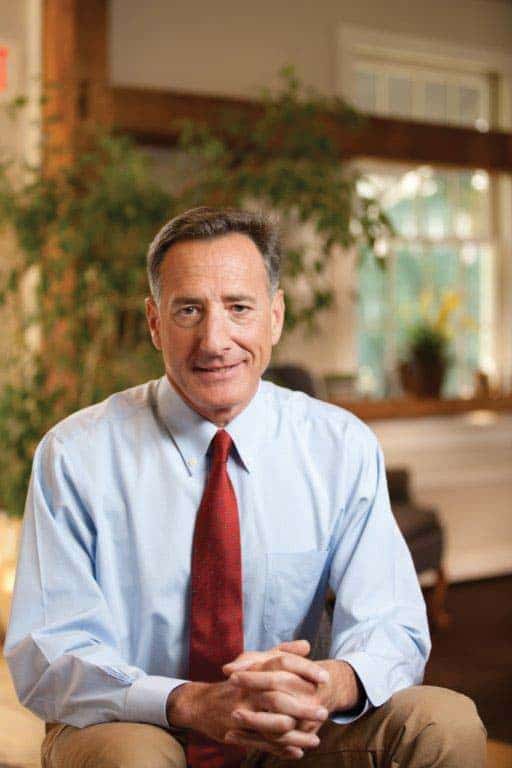By Gov. Peter Shumlin
Last week, the Vermont Highway Safety Alliance held a rally for safe roads on the state house lawn. In attendance were bicyclists, motorists, equestrians, motorcyclists and pedestrians and more than a few who could claim to be all of the above. The rally was a reminder of the recent tragedies we’ve seen on Vermont’s roads and our shared responsibility to do better. It was also a reminder that we should broaden our thinking of highway safety. At the end of the day, no matter how you’re getting there on Vermont’s roads, we all have a responsibility to other members of our community to help everyone get home safely.
In the past ten years, there have been 691 lives lost on Vermont’s highways–that is the equivalent of the entire town of St. George or Waterville being lost to highway crashes. In addition, 3,873 people have suffered a serious injury on our highways—that is the equivalent of the entire town of Brandon or Bristol being injured in a life-changing crash in this same period. One life lost or one injury is too many.
The sad truth is most of these tragedies could have been prevented. The most vulnerable users of the road often pay a higher price for the results of other’s poor judgement on our roads. Cyclists, pedestrians, equestrians, motorcyclists, farmers on tractors, highway construction workers and motorists stand a much better chance of getting home at the end of the day when we all take responsibility for making Vermont’s roads safer by driving carefully and making smart decisions before we get behind the wheel of a vehicle.
In thinking about the basic values that make Vermont what it is, the idea of shared responsibility by all users of Vermont’s roads is right in line with our overall sense of community. In the same way that a neighbor will pull you out of a ditch or help you stack wood up for winter, we are all obligated to play a part in making our roads safe for everyone. That’s the Vermont way, “Freedom and Unity,” and it’s time we started taking it to the streets.
It doesn’t end with just being responsible for ourselves and our behavior. It includes helping to bring everyone else along. The Vermont Road User Pledge ends with a reminder to “share what I know about road safety with others.” That means sometimes having uncomfortable conversations with people who are putting others in danger. That means talking about hard things like, “Why don’t you wear a seatbelt?” or “Are you really okay to drive?” and to intervene or seek help in those moments that could save a life. You can take a stand for road safety by taking the Vermont Road User Pledge through the Vermont Highway Safety Alliance’s website.
Everyone has a part to play, since all users of the highway are members of our community–they are mothers, brothers, neighbors and friends. We have to think at all times when we’re on the highway–think about each other, respect one another, save a life. We can do better and we must do better to keep everyone safe.




